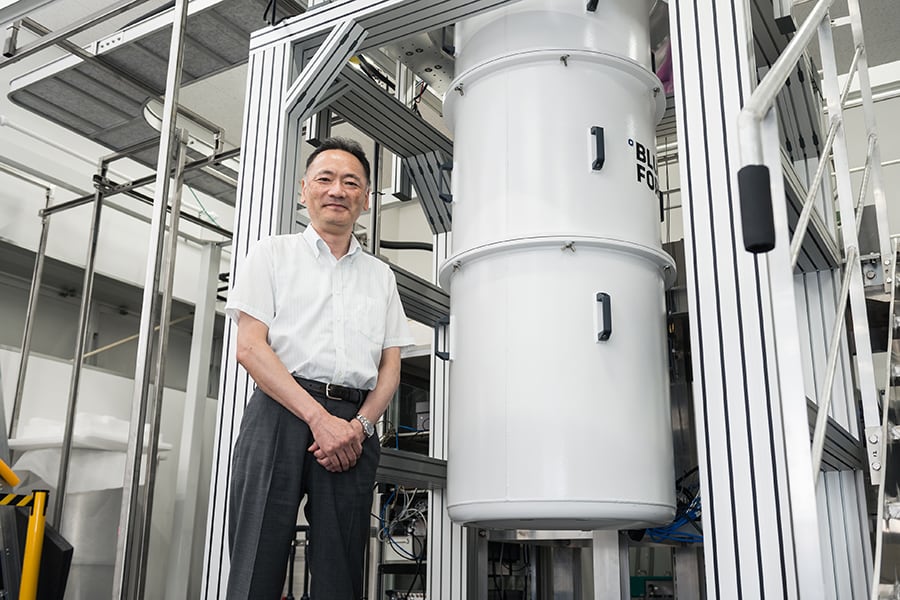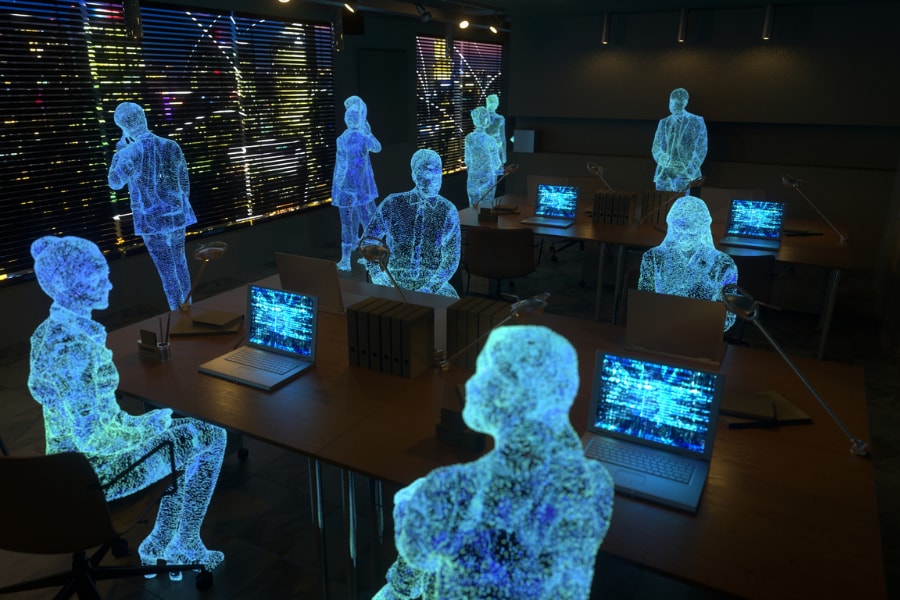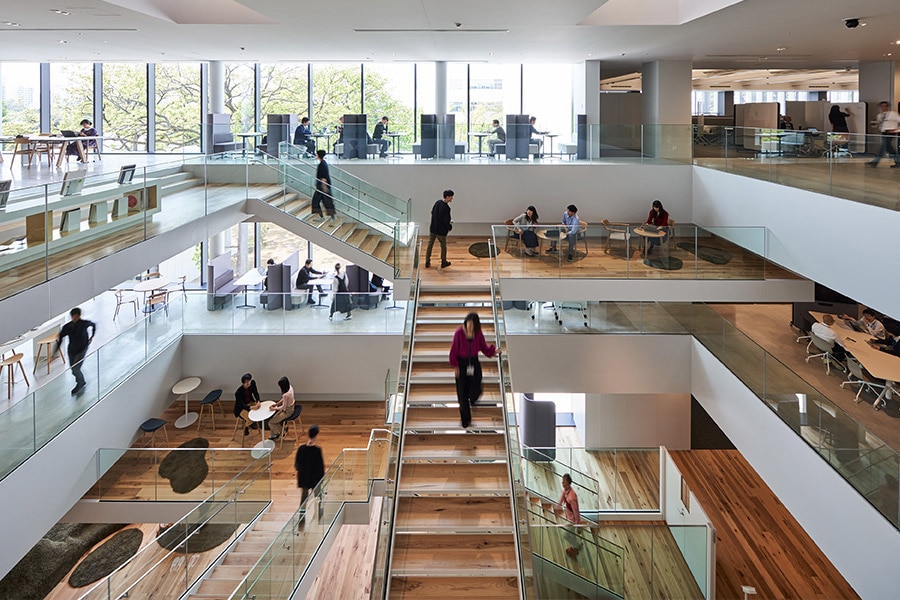The Present and Future of “Quantum Computers”
May. 12, 2023
Yuzuru Kido
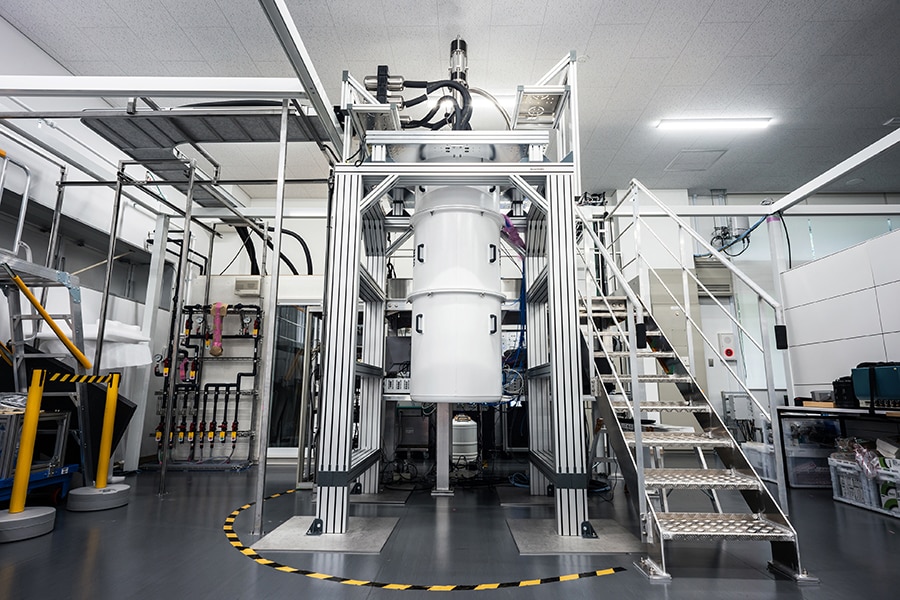
In recent years, the term "quantum computer" is being used more and more. If commercialized, quantum computers will be able to perform calculations that far exceed the processing speed of conventional computers and are expected to revolutionize the development of new drugs and other products.
But how will quantum computers change the future of humankind, and when is their commercialization expected? To learn more about this, we sat down with Hiroyuki Mizuno, Distinguished Researcher at R&D Group of Hitachi, Ltd., who is now leading the development of quantum computers.
0s and 1s: Superposed on each other
-- To begin with, what is a quantum computer?
Hiroyuki Mizuno: As its name suggests, a quantum computer refers to a computer that utilizes quantum phenomena, which are unique phenomena that appear in the microscopic world of nanometer-sized electrons and atoms. Such mysterious phenomena as quantum superposition and quantum entanglement are well known.
Conventional "classical computers" can only process 0s and 1s, but quantum computers use "quantum bits" (qubits), which are a superposition of 0s and 1s. Due to the nature of this superposition of qubits, a quantum computer can handle a larger amount of information at one time than a classical computer.
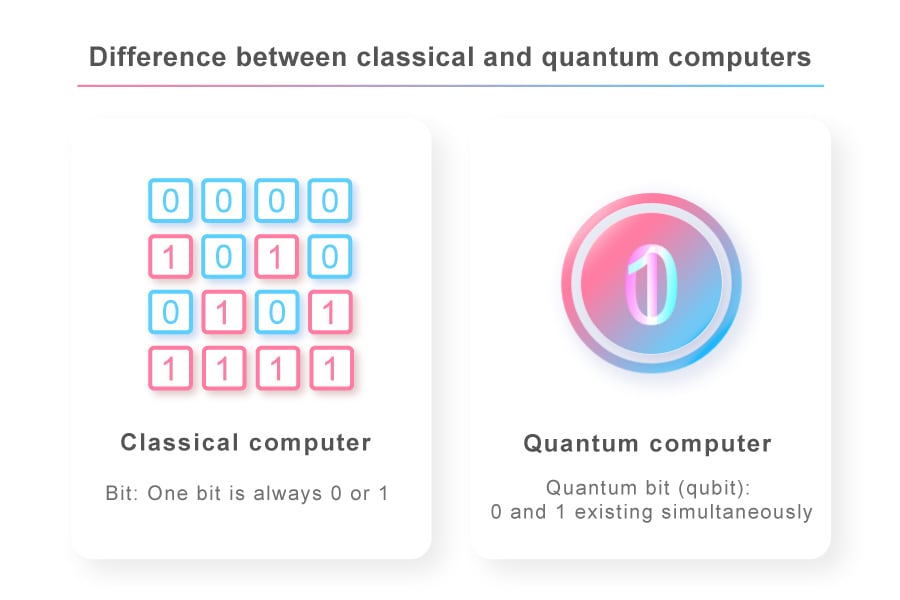
--What exactly is the state in which 0s and 1s are superposed?
Mizuno: The word "quantum" may bring to mind a particle of some sort. However, in the world in which quantum phenomena are observed, it is easier to imagine a state in which 0s and 1s are superposed. Or you can imagine a "wave" because of its nature of being both a particle and a wave. For example, in a sound wave, a state of overlapping like a chord can be achieved.
By using such a state, a quantum computer can perform calculations concurrently. With a conventional classical computer, if you needed to perform 100 different calculations, you would have to process them one at a time; with a quantum computer, you can perform them all at once.
A future brought about by quantum computers
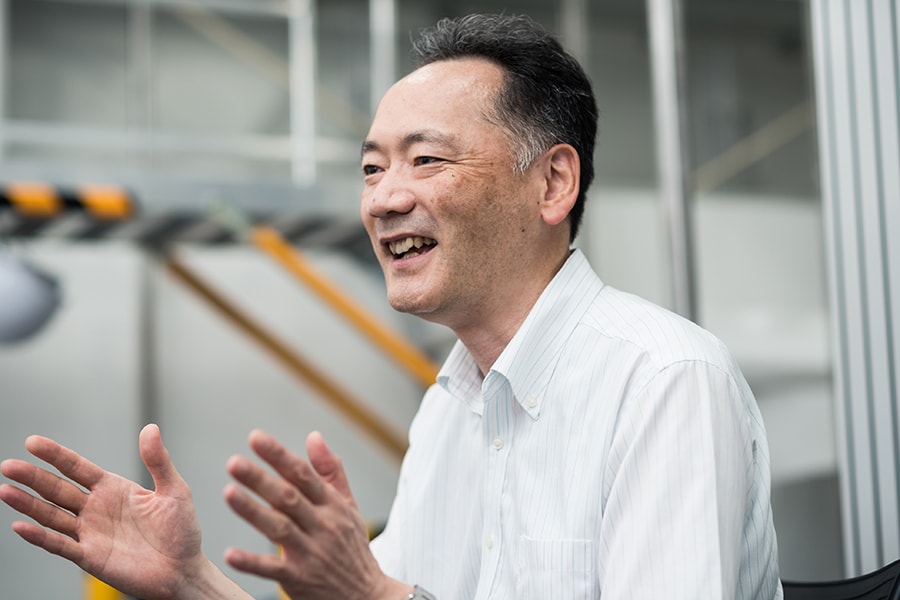
--What kind of future can we expect when quantum computers are commercialized?
Mizuno: Unfortunately, I cannot yet say clearly what the future looks like. It would be like imagining what life today would be like without smartphones. However, I believe that the current situation in which we are forced to use classical computers for calculations will change drastically.
Supercomputers—the highest class of classical computers—are so big that they fill a large room. The reason is that, in the previous example, 100 calculators are lined up to calculate 100 different calculations at once. In an actual supercomputer, more than 100,000 smaller computers are lined up.
However, with the birth of quantum computers, this will no longer be necessary. But that does not mean that supercomputers will become unnecessary. They will be used for different purposes, like smartphones and computers.
--Are there any fields in which quantum computers have an advantage over classical computers?
Mizuno: It is often said that they have an advantage in the fields of chemistry and biotechnology. Reactions of materials, in principle, involve quantum effects. A quantum computer that uses quantum phenomena itself would enable calculations that can easily incorporate quantum effects and would be very effective in the development of materials such as catalysts and polymers.
This could lead to the development of new medicines that were previously unfeasible, thereby contributing to the improvement of people's health. Additionally, in the field of finance, for example, as formulas for options trading are similar to those for quantum phenomena, it is expected that calculations can be performed efficiently on quantum computers.
What is a silicon quantum computer?
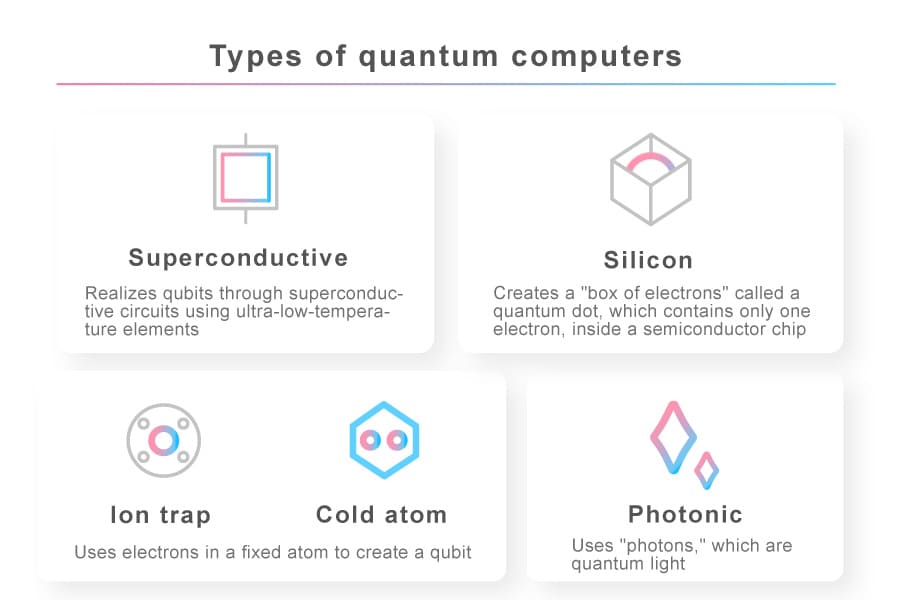
--I understand that there are several types of quantum computers. Could you explain in details?
Mizuno: Quantum computers can be divided into several types depending on how the smallest unit, the qubit (a superposition of 0s and 1s), is created. The most-advanced type is the superconductive type. This method realizes a qubit using a superconductive circuit with an ultra-low-temperature element, and many IT and other companies are developing this type of computer.
On the other hand, the ion trap and cold atom types, which have been increasing recently, use electrons in fixed atoms to make qubits, and their operation is stable, so future growth is expected.
And then there is the silicon type, which is the type that we are researching. In this type, a "box of electrons," which is called a quantum dot and only contains one electron, is made on a silicon semiconductor chip to create a qubit. Additionally, another type, called the "photonic quantum type," which is a quantum computer that uses light, is also being studied.
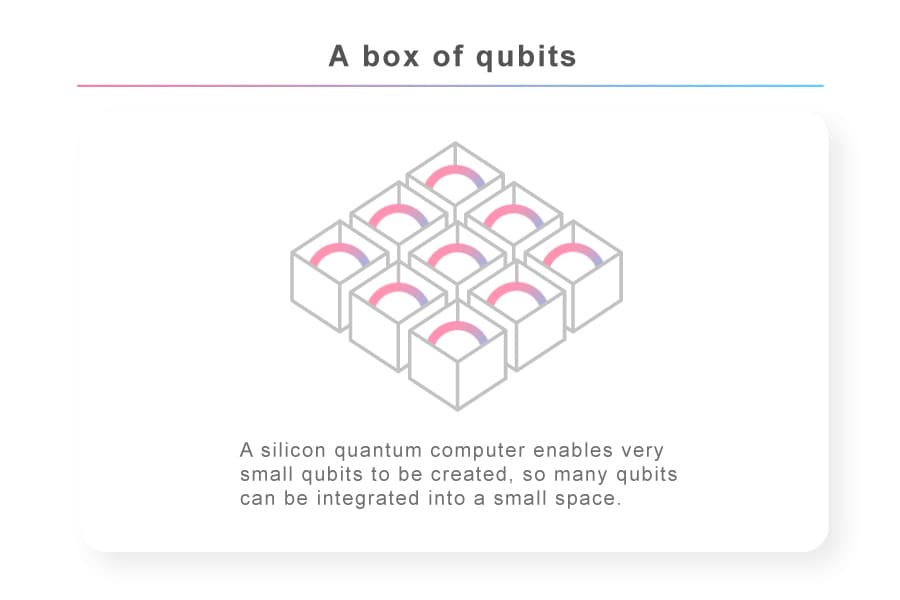
--What are the advantages of the silicon type that Hitachi is developing compared to other types?
Mizuno: The silicon type enables very small qubits to be made, so many qubits can be integrated into a small space. This is where Hitachi's accumulated semiconductor technologies can be leveraged.
To achieve computational power superior to that of classical computers, it is necessary to be able to use a large number of qubits. The silicon type of quantum computer has the advantage that such a large number of qubits can be easily fitted on a semiconductor chip.
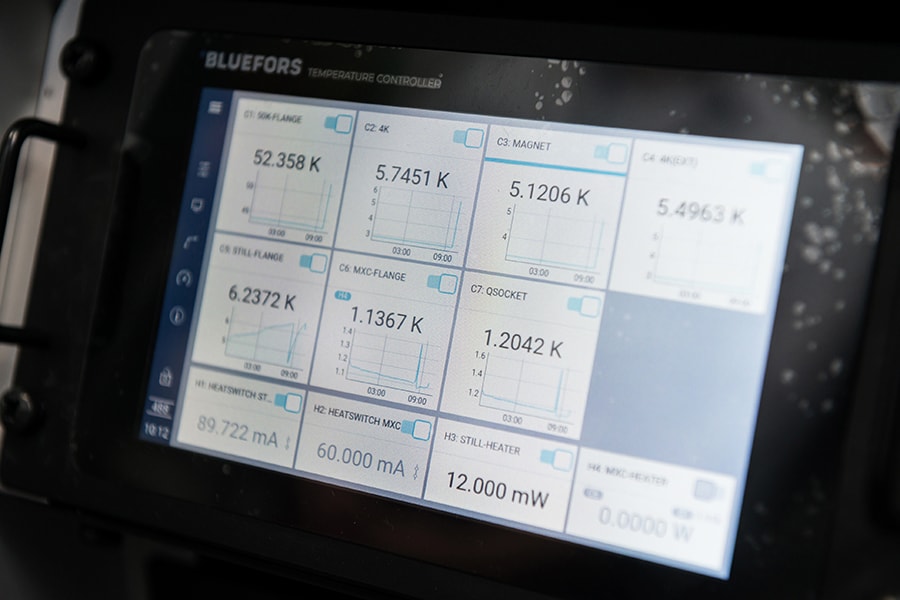
--What are some of the challenges that you are facing in development?
Mizuno: Perhaps it’s the fact that qubits are so small that it is difficult to see what’s actually happening. When you look at a photo of a quantum computer, it looks like a large device, but most of it is a cooling system that creates a low-temperature environment to keep the electrons relaxed and trapped in the quantum dots, and the main circuitry is very small.
We line up electrons one by one in a small area, control those electrons one by one, and check to make sure that they are well controlled. We are developing this technology through constant trial and error.
Aiming for commercialization using Hitachi's technology
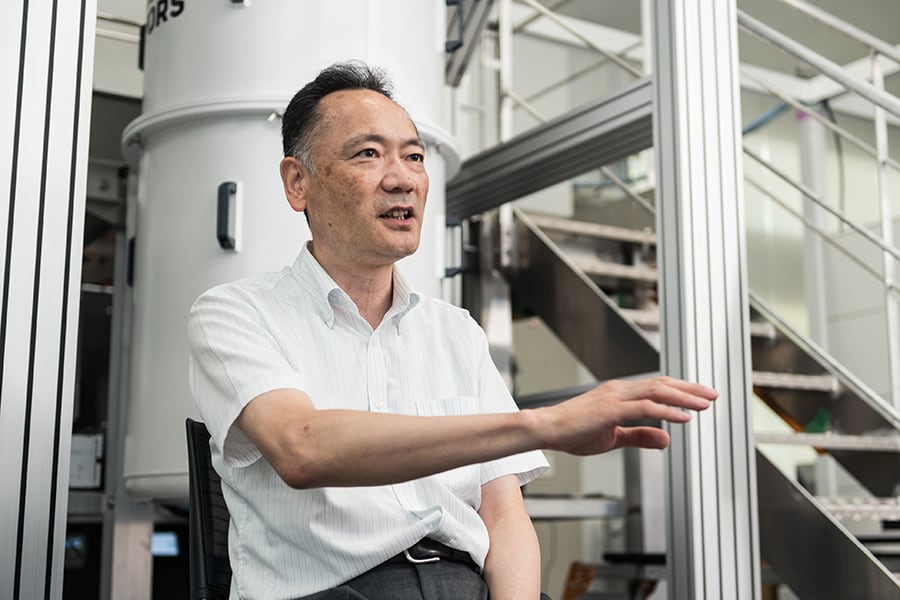
--What strengths, if any, does the Hitachi Group have in terms of development?
Mizuno: I think it is the ability to think about the entire system, from basic physics research to semiconductor processes, circuits, implementation, electronics, software, and algorithms. Moreover, I have been travelling to the Hitachi Cambridge Laboratory (an industry-academia collaboration with the University of Cambridge in the U.K.) for more than 30 years to conduct basic physics research.
My previous experience in the development of CMOS annealing (a technology that simulates a quantum computer using a classical computer, which is used for combinatorial optimization problems) is also extremely beneficial.
Furthermore, I think it is a significant advantage that Hitachi houses employees inside the company who are experts in the technologies needed for development. This is because, even if we were to ask for outside help, we would not know what we are lacking or what we should ask for unless we had someone inside the company with the knowledge to help us.
--When do you anticipate the timing of commercialization?
Mizuno: Many research institutions are conducting experiments on small-scale circuits, such as three or five bits, but that methodology requires effort to increase that number and does not scale well.
Therefore, in our research, we are developing technology with 128 qubits in a line. By systematically operating 128 qubits from the beginning, we are aiming for the early commercialization of a quantum computer on a scale that can solve society’s issues.
--Hitachi's 2024 Mid-term Management Plan sets a goal of developing a 1-megabit-class silicon quantum computer by FY2030. How is this progressing?
Mizuno: One mega means “one million”, and without that many, you can't beat a classical computer. If you can't beat it, it has no value to society. Hence, we have set a target of one megabit and are identifying the technologies that need to be developed, considering what kind of system should be used to accomplish one megabit.
Quantum computers are the subject of a "moonshot R&D project" (JPMJMS2065) that aims to create disruptive innovations originating from Japan. As a member of this project, Hitachi is aiming to commercialize a silicon quantum computer in collaboration with researchers from a number of universities, and we hope to someday develop a quantum computer that will have great benefit to society.
